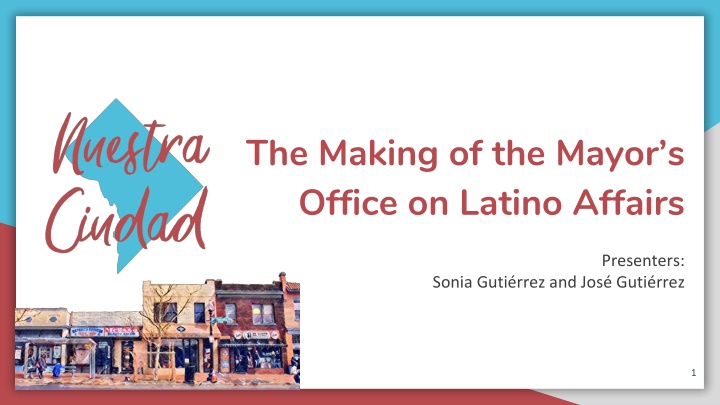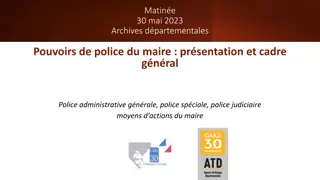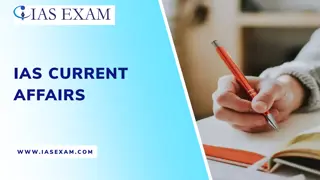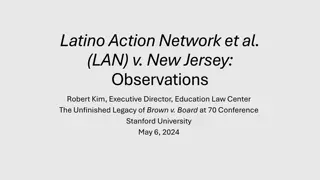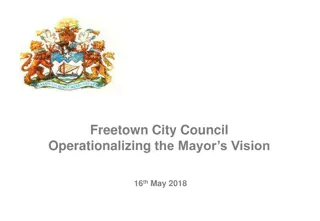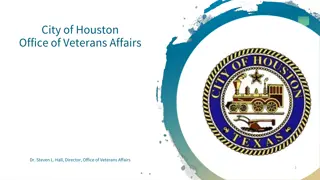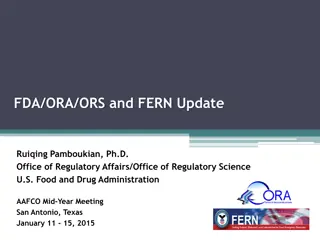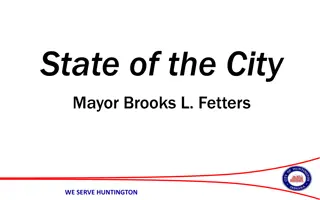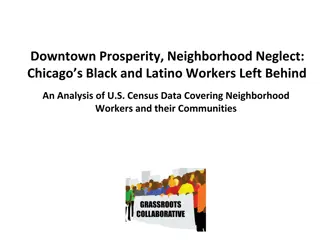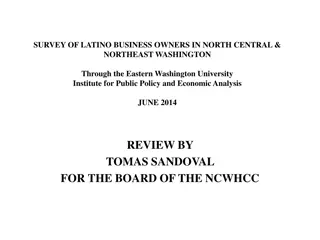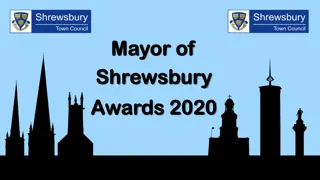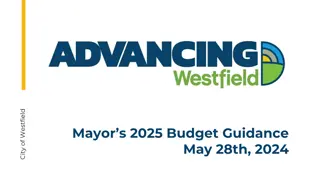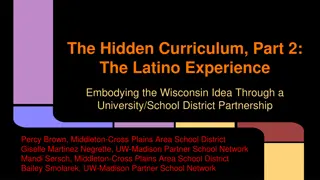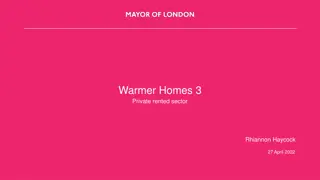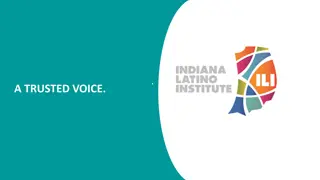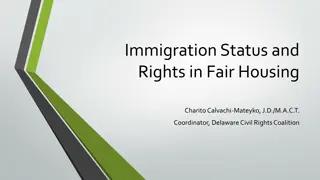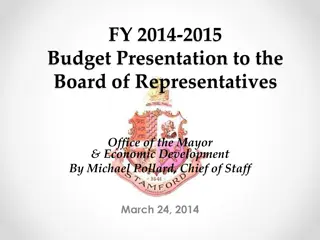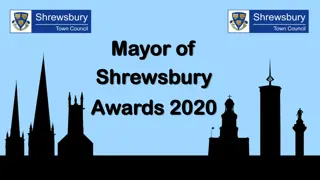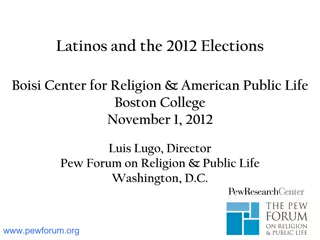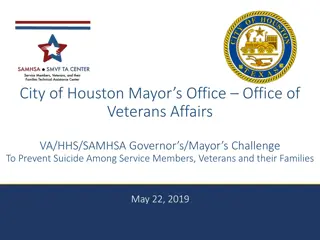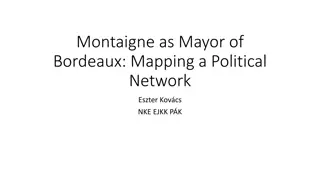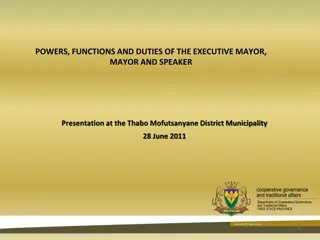The Making of the Mayor's Office on Latino Affairs
Presenters Sonia Gutiérrez and José Gutiérrez delve into the historical events and community movements that led to the establishment of the Mayor's Office on Latino Affairs in Washington D.C. during the 1970s. Explore the impact of the Latino Community Development Act and the role of civic education in social change within the broader context of civil rights movements in Latin America and the United States.
Download Presentation

Please find below an Image/Link to download the presentation.
The content on the website is provided AS IS for your information and personal use only. It may not be sold, licensed, or shared on other websites without obtaining consent from the author.If you encounter any issues during the download, it is possible that the publisher has removed the file from their server.
You are allowed to download the files provided on this website for personal or commercial use, subject to the condition that they are used lawfully. All files are the property of their respective owners.
The content on the website is provided AS IS for your information and personal use only. It may not be sold, licensed, or shared on other websites without obtaining consent from the author.
E N D
Presentation Transcript
The Making of the Mayors Office on Latino Affairs Presenters: Sonia Guti rrez and Jos Guti rrez 1
Charla Framework Events Leading to Latino Community Development Act & Founding of MOLA Community Organizing & Demonstrations Role of Civic Education in Social Change Outcomes of Latino Community Development Act 2
The Broader Context (1966 - 1976) LATIN AMERICA Across the U.S. Civil rights movements were in full force In Latin America People struggled for their lives in countries affected by civil war, dictatorships & political instability UNITED STATES 3
A PROFILE OF DC LATINOS IN 1970s Homelands The Caribbean, M xico, Central and South America Reasons for Migration - Escape civil war & poverty, seek a better life Making Home Most settled in NW quadrant Jobs Predominantly, in service industries: Hospitality Restaurant & Food Service Construction Infrastructure work The painting of "Un pueblo sin mural. . ." designed by Carlos "Caco" Salazar and Felipe Mart nez, 1973 (12 Yrs that Shook & Shaped Washington: 1963-75, Anacostia Community Museum) 4
Events Leading Up to Creation of MOLA DC Department of Human Services & Walter Washington move to close Office of Spanish- Speaking Affairs Community responds with mass demonstrations grounded in civil rights and liberation theology movements The Latino Community Development Act, DC Law 1-86, is created (cosponsored by Marion Barry, Polly Shackleton & John A. Wilson) It is passed into law on September 29, 1976 5
Council of the District of Columbia - 1975 Members Sterling Tucker, Chair Douglas E. Moore, At-Large Member Julius Hobson, At-Large Member Marion Barry, At-Large Member Jerry A. Moore Jr., At-Large Member David A. Clarke, Ward 1 John A. Wilson, Ward 2 Polly Shackleton, Ward 3 Arrington Dixon, Ward 4 William Spaulding, Ward 5 Nadine Winter, Ward 6 Willie Hardy, Ward 7 First elected members of the DC City Council, 1975 (Photo courtesy DC Public Library, Washingtoniana Collection - 12 Yrs that Shook & Shaped Washington: 1963-75, Anacostia Community Museum) James Coates, Ward 8 6
Sources of Ideas for Latino Community Development Act* *From first draft to bill s final copy, worked with Bruce C. French, who served as Legislative Counsel for DC City Council 7
The Greatest Obstacles Faced Lack of Self-Government The Mayor and City Council were appointed by U.S. President Officials had no incentive to address civil rights or local community needs Home Rule Act of 1973 The Act was brokered, coordinated & led by civil rights leaders DC residents elected a Mayor & City Council members for first time in 1974 8
Creating Key Alliances Reach out to Grassroots - First gather support of community & its leaders Engage the Church- Enlist activist ministers, priests & other clergy Build Coalitions- Engage other communities of interest Involve Students - Make participation a Lived Civic Education learning experience Build a Core Working Group - Identify those who have time & resources to coordinate, strategize & rally 9
Key Lessons Learned Community Leadership is about civic education Organized activities & single-focus solutions created community gains & community pride Adult Education is vital It levels playing field & is key to building a stronger community Power concedes nothing without a demand. It never did and it never will Frederick Douglass 10
What was needed to pull this off? Fostered Civic Education & Mobilized Moved volunteers into action Led with advocacy Organized group demonstrations, acts of civil disobedience Had a Specific Ask Focused on specific outcome (i.e., MOLA) Worked Together Learned to address conflict without confrontation & worked with one another 11
Recommendations for New Generation of Latino Community Organizers & Activists Mobilize Volunteers: Foster civic education Lead with Advocacy: Participate in the political process Get the Group to Deliver a Product: Choose specifics Go for Concrete, Measurable Benefits: Housing, jobs, economic development, access to capital, etc. Address Conflict Without Confrontation Learn Demonstration Tactics 12
What the Latino Community Development Act / MOLA Made Possible for DC Latino Community LATINO-SERVING CBOs CITY GOVERNMENT Carlos Rosario Public Charter School Grants Latin American Youth Center / Youth Build Language Access Vida Senior Centers & Vida Senior Residences Police and Fire Department hires Andromeda Transcultural Health Better lives for ourselves & our children Other DC Government job opportunities Ayuda Legal Services Small Business Loans (many successful CentroN a Latino-owned businesses, from restaurants CARECEN to construction companies) Oyster School Housing Ownership La Cl nica Del Pueblo Citizenship Mary s Center LEDC, Mi Casa & others 13
Q&A 14
